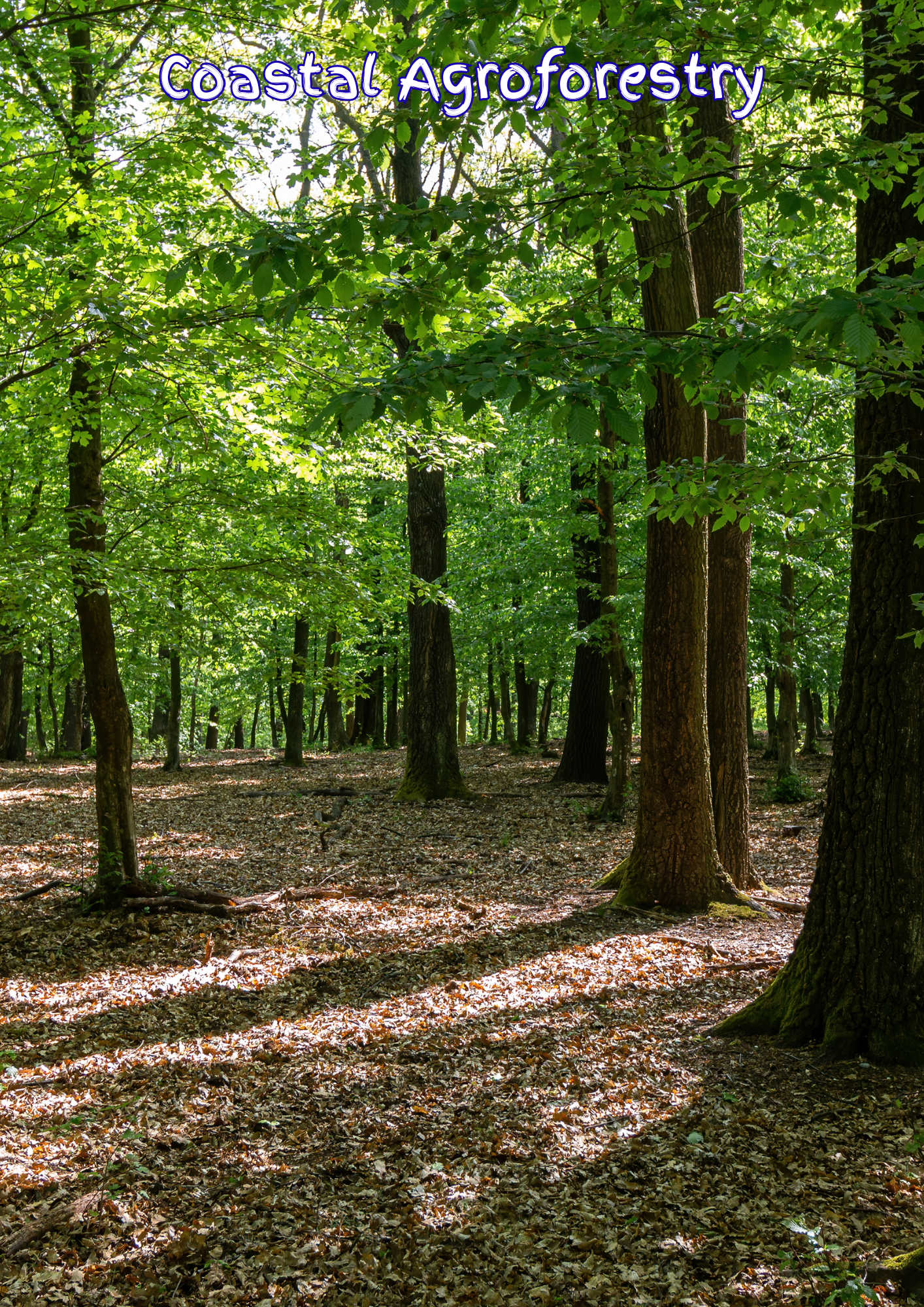Project Details

🇧🇩 Six districts and 48 Upazials of Khulna Division (Khulna, Sathkhira, Bagerhut) Barishal Division (Pirojpur, Barguna, Patuakhali)
The project aims to protect over 12 million trees over a 15 uears of period, capturing an average of 340,000 tonnes CO₂ per annum
The Comprehensive Land Management through Climate Resilience at Coastal Agroforestry Project (CLM-CRA) in Bangladesh addresses the escalating climate threats faced by the country’s vulnerable coastal regions, such as salinity intrusion, cyclones, tidal surges, and soil degradation. Centered on integrating agroforestry with climate-resilient land management, the project aims to restore ecological balance while enhancing socio-economic stability.
Project ID: TBD
By introducing salt-tolerant tree species (e.g., mangroves, coconut, betel vine) alongside climate-hardy crops, the initiative combats soil salinity and erosion, stabilizes coastlines, and shields farmlands from extreme weather. Agroforestry systems are designed to mimic natural ecosystems, promoting biodiversity, improving groundwater recharge, and sequestering carbon to mitigate climate change. Farmers are trained to adopt sustainable practices, diversifying their income through timber, fruit, and non-timber forest products, supplemented by carbon credit revenues from global markets.
The project prioritizes community participation, engaging locals in land-use planning, nursery development, and afforestation drives. It also establishes early-warning systems and cyclone-resistant infrastructure to reduce disaster risks. Partnerships with NGOs, government agencies, and international climate funds ensure technical support and scalability.
By transforming degraded coastal lands into productive agroforestry landscapes, CLM-CRA fosters environmental resilience, food security, and poverty reduction. It empowers communities to transition from climate-vulnerable monocultures to diversified, sustainable livelihoods, aligning with Bangladesh’s national climate strategies. The project serves as a replicable model for regions grappling with coastal degradation, demonstrating how ecological restoration and human well-being can coexist in the face of a changing climate. Economic benefits for local communities
The Comprehensive Land Management through Climate Resilience at Coastal Agroforestry Project (CLM-CRA) targets Bangladesh’s southwestern coastal region, a dynamic but critically vulnerable landscape shaped by the confluence of the Bay of Bengal and the Ganges-Brahmaputra delta. Spanning districts like Khulna, Satkhira, Bagerhat, Pirojpur, Barguna and Patukhali this region faces existential threats from climate change, including frequent cyclones, tidal surges, saline intrusion, and coastal erosion. Rising sea levels and reduced freshwater flow from upstream have exacerbated soil salinity, rendering vast tracts of agricultural land barren and displacing communities reliant on traditional farming. The coastal zone is characterized by a mosaic of embankments, shrimp farms, and degraded mangrove forests, once part of the Sundarbans ecosystem. Overexploitation of resources, deforestation, and unsustainable aquaculture practices have disrupted ecological balance, leaving soils infertile and water sources contaminated. Cyclones like Sidr (2007) and Amphan (2020) have further devastated infrastructure and livelihoods, pushing marginalized populations deeper into poverty. The CLM-CRA project intervenes by revitalizing these degraded lands through climate-resilient agroforestry. It introduces salt-tolerant species such as mangroves (Sundari, Gewa), coconut palms, and fruit trees (e.g., date palm, tamarind), intercropped with saline-resistant vegetables (e.g., saltwort, purslane). These agroforestry systems mimic natural ecosystems, stabilizing soil, reducing erosion, and creating green barriers against storm surges. Mangrove restoration not only sequesters carbon but also revives aquatic biodiversity, supporting fisheries—a critical livelihood source. The project also addresses water management by constructing rainwater harvesting systems and rehabilitating canals to flush out salinity, restoring freshwater access for irrigation. Community-led afforestation drives reclaim abandoned shrimp farms, converting them into productive agroforestry plots. Farmers receive training in sustainable practices, enabling them to diversify income through timber, fruit, honey, and carbon credits. By integrating ecological restoration with socio-economic resilience, the CLM-CRA project transforms the coastal region from a climate "hotspot" into a model of sustainable adaptation. It empowers communities to coexist with their environment, ensuring food security, economic stability, and long-term ecological health in one of the world’s most climate-vulnerable regions.